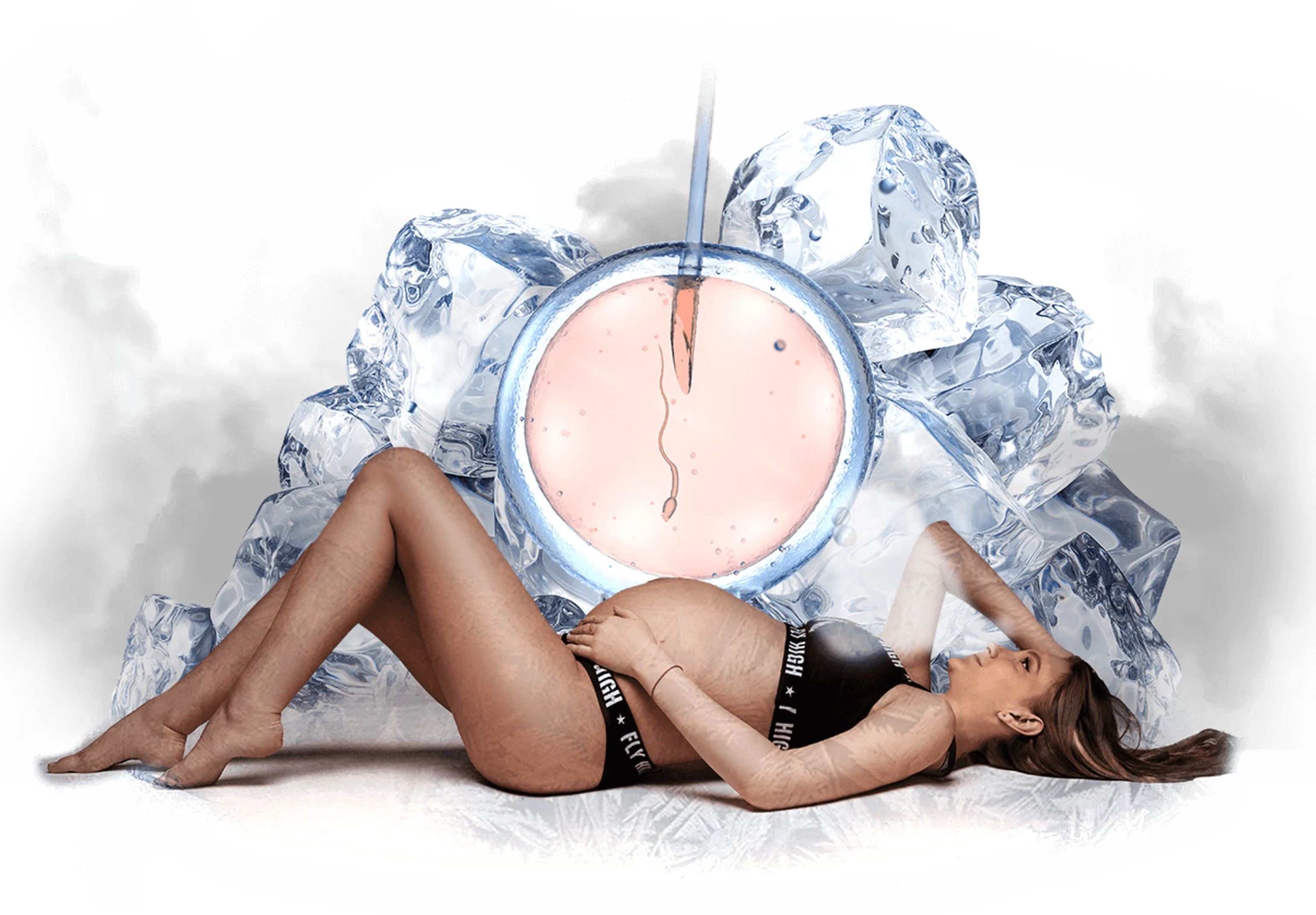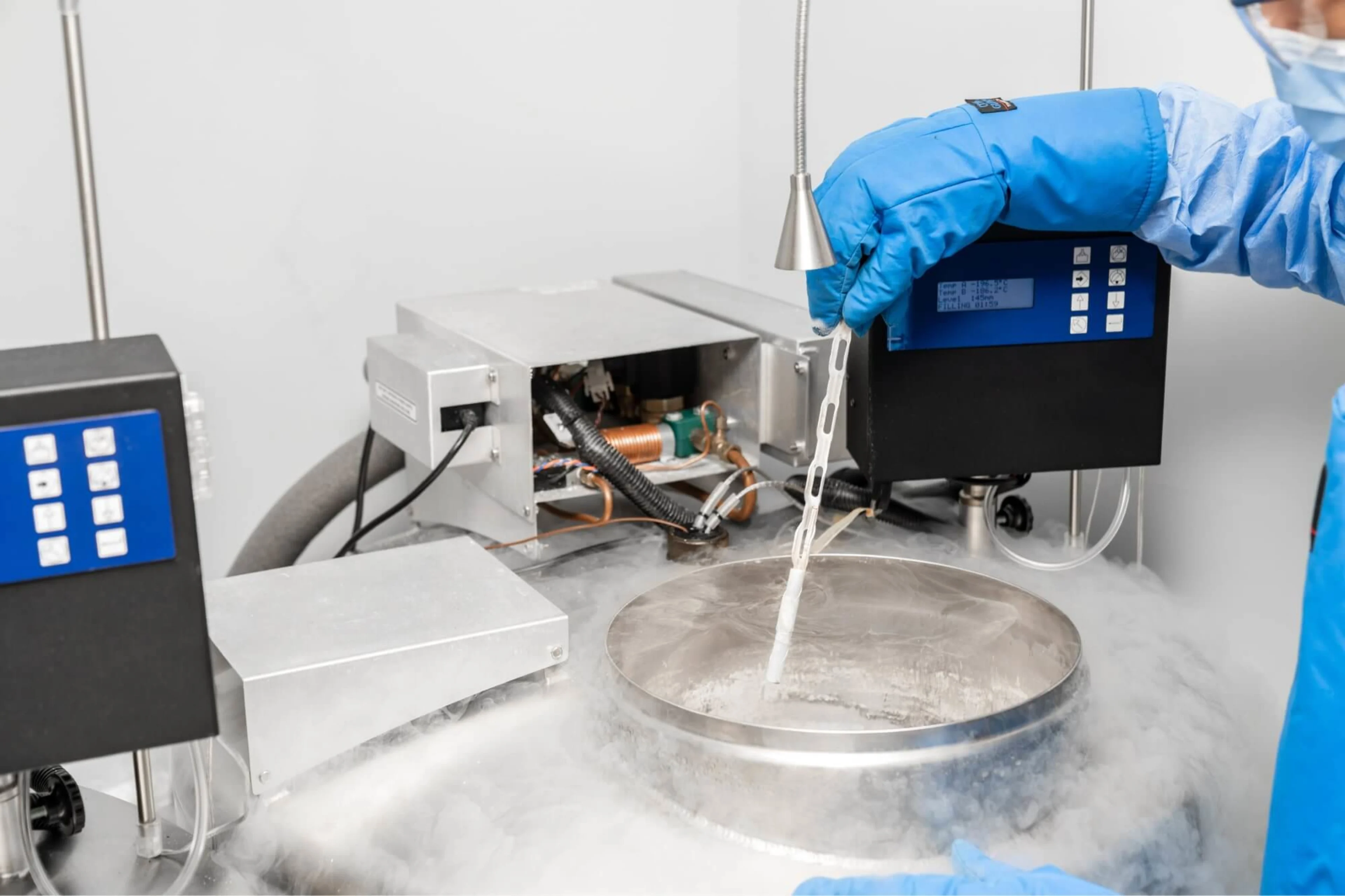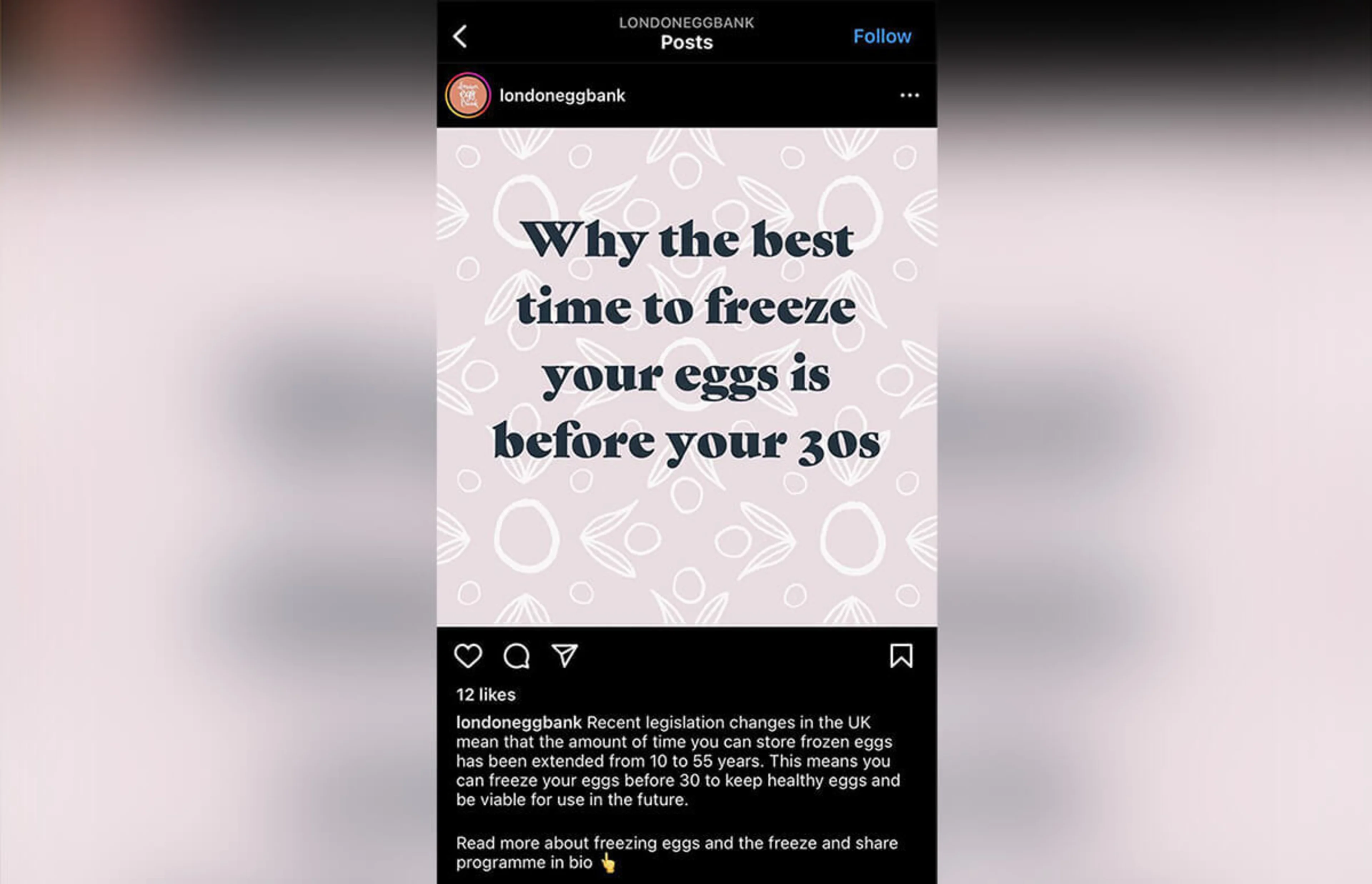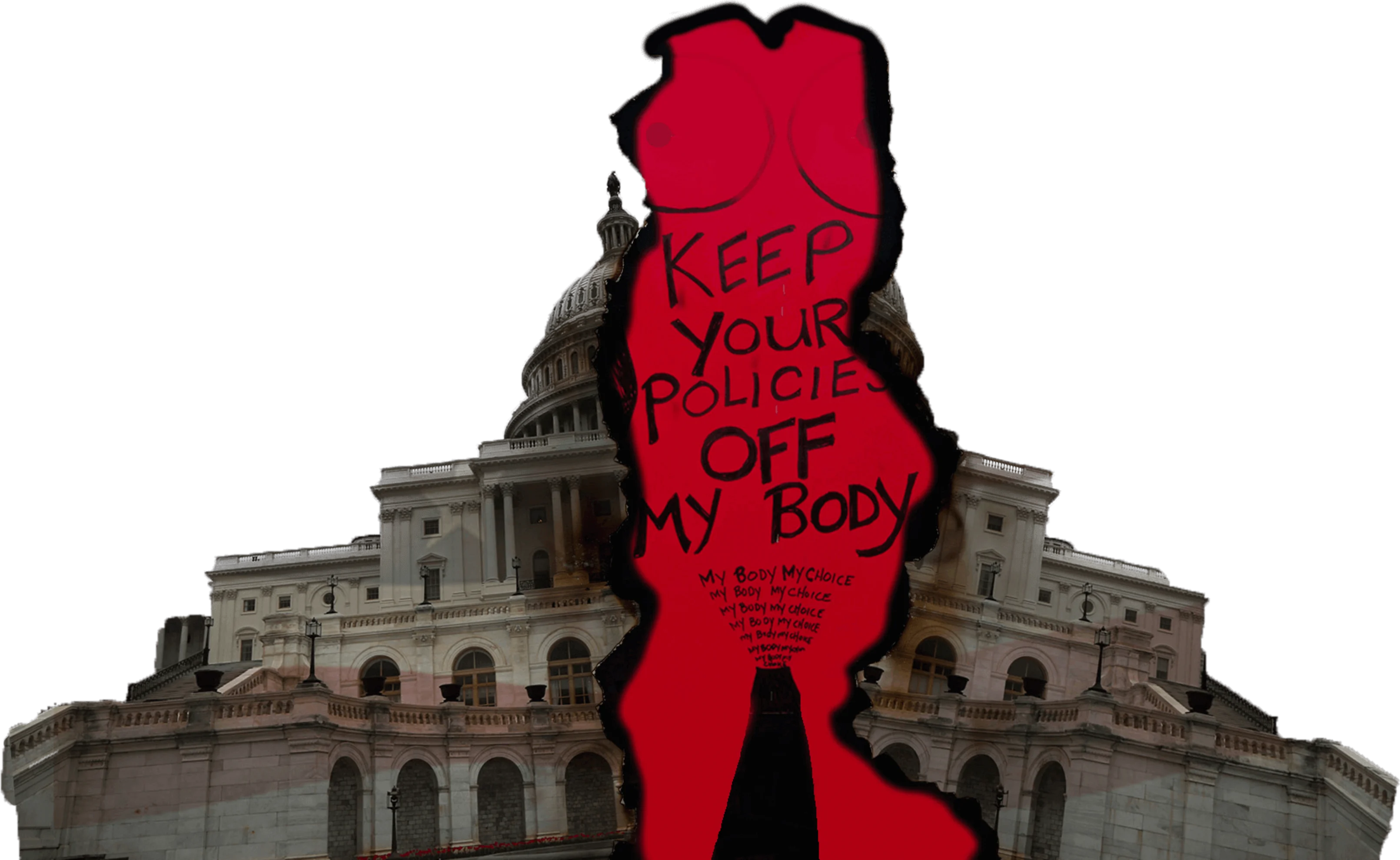Freezing your eggs is not an insurance policy for children


As a woman, you’ve probably always assumed that having your eggs frozen would be the best way to guarantee you could start a family in the future when you felt ready. I wouldn’t blame you for thinking that, because it’s how it’s historically been sold to us. But unfortunately, we’ve been misled not only about the success rate of egg freezing, but its financial and physical tolls. The worst part? Clinics are now setting their sights on teenagers.
To understand why they would want to target women from such a young age, I’m going to draw on facts The Guardian uncovered, Should you freeze your eggs? Last year the UK’s fertility regulator called for an update to the law around egg freezing. This in itself is a major cause for concern. It shows that, although they might not be the majority, there are too many clinics deceiving women about the egg-freezing process. It seems that they don’t want to tell women about the risks or the low success rates, for fear that they’ll decide not to go through with it. For the clinic, that would mean no cash. It’s shocking, but the sad truth is some clinics and doctors are money hungry. Of course, there are many amazing doctors out there who really care about their patients and provide them with all the accurate information. But there are too many who aren’t like this, and that’s the problem.
Dr Zeynep Gurtin explained some of her findings from an academic analysis about how clinics advertised egg freezing in targeted ads and websites. Although conducted a couple of years ago, her findings are shocking nonetheless. She discovered that clinics tended to promote the benefits of egg freezing much more than the potential risks and downsides. One clinic even claimed on their website that they had an 85% success rate, when in reality it’s around 18%), though it depends on the woman’s age. When she and her team printed their findings and presented them to that clinic, they quickly took the claim down from their website. That shows that had they not been confronted, the clinic would’ve probably carried on promoting an extremely misleading figure to women. Women who, by the way, are already in a vulnerable position. Worrying about whether they’ll be able to have children can cause a lot of stress and with that comes desperation. They want a solution to their problems and with egg freezing being promoted as an insurance policy, it’s no wonder so many women are undertaking it.
But the reality is that only 1 in 5 women who have retrieved their frozen eggs have successfully gone on to become mothers. Sadly, the success rate is so low because of the process that happens when the eggs are thawed and fertilised. This is the part that no one really talks about because we’ve been sold the idea that every frozen egg has the potential to become a baby, which is simply not true.

Up until September 2021, a woman’s frozen eggs could only be kept in storage for up to 10 years. Then this rule was changed to allow women more time to make a decision about what they wanted to do with them. Now, you can continually add an extra 10 years up until 55 years. It’s a great achievement for the women who campaigned for this change, because having only 10 years to decide what to do with your frozen eggs is unfair, considering that by that point the woman may only be in her thirties or forties. Maybe she wants to be a mum in her fifties, or maybe she still isn’t in the position in life she thought she’d be to welcome a child. But either way, women deserve all the time they need to think about whether to have a baby, because it’s a life-changing decision.
But the extra time women can now leave their eggs in storage for is likely to be the reason that some clinics are now targeting teenagers with ads on Instagram. A woman is considered at her most fertile between the age of 18 and 24. This means clinics can use that figure to their advantage and prey on young women’s worries about the declining quality and quantity of her eggs as she ages. In theory, a teenager having her eggs frozen while they’re at their prime sounds great, especially as she has up to 55 years to decide what to do with them. But they might not understand the physical and emotional repercussions, much less the financial ones of the fertility treatment. For some, when the costs of every step of the egg-freezing process are put together, their bank balance can take a hit of £30,000. I doubt many teenagers would be able to afford it, but who’s to say they wouldn’t take out credit cards and loans? It’s despicable that clinics are preying on their naivety and it makes me wonder why there isn’t a minimum age at which they are allowed to advertise their services - 21 perhaps.

Speaking of the physical repercussions, one of the main ones is the toll that the hormones you’d have to take have on your body. Once a person decides to undergo freezing their eggs, they have to inject themselves with hormones for around 10 to 12 days (it can differ from person to person). This helps to increase the number of follicles, and therefore eggs, that are produced. The more eggs that are produced, the more likely the doctor will be able to retrieve a few healthy ones. The influx of hormones can understandably cause everything from mood swings to bloating. Everyone is affected differently, but it’s important to understand the physical repercussions before deciding if egg freezing is right for you, because unfortunately some doctors won’t go into detail about this for fear of scaring you off. But once you’re fully informed, you might decide you still want to do it, but at some point in the future instead, especially considering how it might affect you being able to work or study in those 10-12 days.
You’ll also have to have a transvaginal ultrasound so that the doctor can assess how many follicles you have before undergoing treatment. The hormones will boost this number, but the doctor will give you a rough number he expects it will rise to. Once you have an adequate number of follicles, you’re put to sleep under a general anaesthetic and a transvaginal probe with a needle will be inserted. The eggs collected are instantly flash-frozen and the whole procedure roughly takes 10-20 minutes. When you wake up, the doctor will inform you of how many eggs they managed to retrieve. Then, the eggs are put into ‘storage’ ready for when or if you decide to use them. This by the way, incurs a monthly cost. I don’t know about you but at this point I’d start to feel like a cash cow, constantly having to pump out money. Storage? I’m freezing my follicles not moving house. It’s a bizarre concept, but of course just another way for clinics to have a constant flow of income.
If you eventually decide to have your eggs thawed, you have to hope you’ll get at least one healthy fertilised egg, which in most cases sadly doesn’t happen. Again, this is something that some clinics don’t warn women about, and it’s horrifying to think people are being put through a physically and emotionally taxing process all potentially for nothing. Out of the several eggs that were frozen, there may only be a couple who take well to being fertilised once they’re met with the sperm from your partner, or the donor that you chose. The fertilised eggs are then genetically tested to screen for defects and then, if you’re lucky, you’ll end up with at least one healthy embryo.
Overall, you’ve potentially spent thousands of pounds and after all the probes, scans and tests you may not come away with a baby. This isn’t to put you off egg freezing if it’s something you’re interested in, but as Alexandra from The Guardian interview put it, “You’re paying for the chance to have a child.” It’s good to be aware that egg freezing is not the guarantee that so many clinics and doctors may tell you it is. Only once you’re fully informed can you feel empowered to make such a potentially life-changing decision.
Let’s take back control of what happens to our bodies and probe the doctors first about what egg freezing entails, before they start probing us. We deserve clear answers and that’s what we should get once an update to the law around egg freezing has been made. It’s great to see the UK’s fertility regulator is on our side, showing that we refuse to be duped any longer about decisions concerning our bodies. I personally think a well-informed woman is a powerful one, and that’s our way of fighting back.
Written by
Safia YallaouiJournalist passionate about women's rights and shining a light on political and criminal injustices. Can't start the day without a flat white.
Read next
The U.S. is slipping towards authoritarianism, starting with your reproductive rights

Archie Rankin
What men really think about the 'Male Pill'

Archie Rankin
Yes, I'm a plus size person. And that's okay.

Melita Hosken
Weekly emails
Get more from Safia
The Fledger was born out of a deep-seated belief in the power of young voices. Get relevant views on topics you care about direct to your inbox each week.
Write at The Fledger
Disagree with Safia?
Have an article in mind? The Fledger is open to voices from all backgrounds. Get in touch and give your words flight.
Write the Contrast